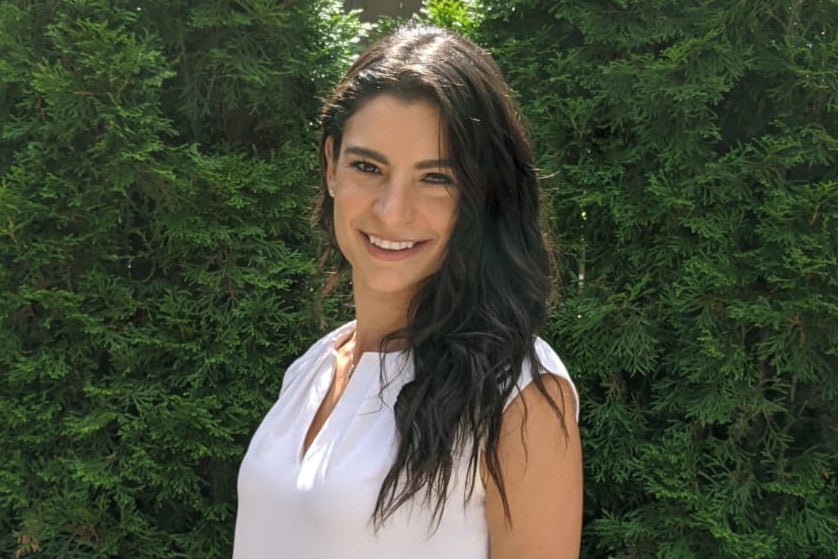
Designing and managing resistance training intervention
Osteoporosis is a bone disease that increases the risk of fracture due to low bone mass and deterioration of bone tissue. People with a spinal cord injury experience rapid bone loss shortly after an injury, but the long-term bone changes are not yet well understood. Resistance training is a common non-pharmaceutical intervention for treating osteoporosis.
Rasha El-Kotob's PhD research examines considerations for designing and managing resistance training interventions. In particular, she looks at timing of exercise interventions. For example, determining whether people with a spinal cord injury could still benefit from an exercise intervention aimed to prevent or manage bone loss years after an injury. Furthermore, Rasha’s research examines the benefits of resistance training interventions and whether the benefits outweigh the harms in the generally healthy population as well as in the clinical population. Proper reporting of harms in resistance training studies can help researchers, clinicians, and patients decide when and if to engage in a resistance training intervention.
The pandemic shift
Rasha naturally gravitates to quantitative research - it is part of her research training and fits with the way her mind works. But when the pandemic put a stop to her in-person exercise clinical trial, she had to remotely gather qualitative data to inform her revised thesis plan. With guidance from her supervisor, Professor Lora Giangregorio and support from colleagues in her lab, she quickly learned and enjoyed the shift in research design. As part of her qualitative research, she interviewed individuals with chronic health conditions who had an adverse event as a result of resistance training to explore their experiences and perspectives. She also interviewed researchers to understand current practices and perspectives on adverse event reporting in resistance training trials, and to identify barriers and facilitators of adverse event reporting. The interviews were conducted to inform and adapt adverse event reporting guidelines to exercise which can be used to increase the quality of published research with respect to safety of resistance training interventions.
Becoming a parent during doctoral studies
Rasha wasn't sure if she wanted to put becoming a parent on hold until after completing her doctoral degree even though she knew that balancing parenthood with study could be challenging. Giving birth to her son after she completed her comprehensive exams, Rasha intentionally stepped away from her degree for a 12 month parental leave. She applied for the University of Waterloo Graduate Studies Parental Leave Bursary while she was home with her new son and it really helped, she says: "I was so glad I decided to take that chance." Rasha dipped back into some of her reading and writing during nap time to keep her “study brain” going and before she knew it, she was back at her studies and had to learn to balance being the parent of a toddler as a graduate student. "People wondered how I did it, but there's no secret, it's just a different respect for time." Forced to be efficient and adopt better time management, Rasha knew she had to schedule her time and break up her day into chunks of intense concentration on tasks that needed to be accomplished.
"People wondered how I did it, but there's no secret, it's just a different respect for time."
- Rasha on being a new parent while working toward her doctoral degree
"Study and project time? Well, that can only fit in between daycare pick up and drop off, so I just had to get it done. During busy times I was also willing to work evenings and even some weekends. I knew that becoming a parent during my graduate studies would involve sacrifices and I personally think it has been worth it.” Rasha also credits the support that she has around her to make it all possible. She acknowledges that her network of family, friends, and a good community gives her situation an advantage.
Rasha is in her final year of her doctoral program and will be graduating soon. As for what's next, research is such a big part of who she is: “I’m interested in identifying critical knowledge gaps and designing research studies that can make a difference”. She is hoping to continue into a post-doctoral fellowship and from there, assess her options for a career in research, teaching or industry.